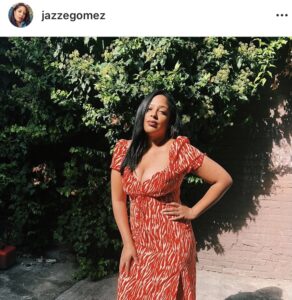If you're exploring fibroid treatments, you're not alone. Up to 80 percent of adult black women have fibroids. (That's a rate almost three times higher than white, Hispanic or Asian women.) Now, these muscular growths aren't usually cancerous. But they can drastically affect your quality of life. In fact, women with fibroids experience pain, heavy bleeding and fertility loss. And here's the worst part. Many black women can't access quality healthcare. So they never explore fibroid treatments. For that reason, many women choose hysterectomy (removing their uterus). Even when less invasive treatments work. And we believe that has to change. 
The problem gets worse when it comes to black maternal health. Like their increased fibroid rates, black mothers die from complications related to pregnancy at roughly two to three times the rate of other women. And that's regardless of their income or education levels. For that reason, President Biden and Vice President Kamala Harris have declared Black Maternal Health week, in an attempt to fight disparity in maternal health outcomes. And it's also why we're sharing stories from black women who struggled to access equal health care. Because we hope to bring equity to fibroid treatments and all areas of healthcare.
Jasmine Gomez is one such woman. She told Women's Health magazine that, in her 20s, she wanted to donate her eggs. But during the process doctors discovered nine large fibroids. It shouldn't have been a surprise, she said. After all, she says, "My mom dealt with uterine fibroids herself (she had surgery to remove hers when I was younger, but we never really talked about it."
That lack of information meant Jasmine didn't know much about fibroids. "I didn’t know that you are more at risk of developing fibroids if you have a family member who also has them. I also didn’t know that fibroids are more common and severe in African American women than those of other ethnicities," she says.
Because she lacked key information, Jasmine's large fibroids needed to be removed surgically. And that's when things got really bad. During surgery, doctors discovered more fibroids. They tried to remove them all. But the surgery was taking too long, and Jasmine lost lots of blood. So they closed her up. And left behind fibroids that were deeply embedded in her uterus. Their advice? To let the remaining tumors get bigger. And get surgery again when they caused problems.
Jasmine wasn't ok with that advice. She couldn't face a future of constant surgery. So she got to research, and decided to have a partial hysterectomy. Now, that's not the right outcome for every woman. But it's one that made sense for her lifestyle. And one she made armed with knowledge. Which is why she says, "I wish I'd been better informed about fibroids when I first learned I had them." And why we're sharing more information about these tumors today, to honor Jasmine as our Woman Crush of the week.

Let's really understand uterine fibroids. These fleshy, non-cancerous tumors develop in, on or around your uterus. And, we don't know why. But we do know that fibroids are three times as common in African American populations as in Caucasian ones.
Recently, a study in the Journal of Women's Health suggested two possible explanations for the increased rate of fibroids in black women. So, what were the culprits? Douching and using perineal talc. (Some women apply perineal talc to sanitary napkins, underwear, or directly to their skin. It's supposed to reduce chafing and odor. But it can be very dangerous for your health.) We already knew that exposure to talcum powder could increase the risk for ovarian cancer. But now, research suggests it also raises the risk for fibroid growth.
This is true for all black women. But it's an even bigger problem for African American women with Sickle Cell Disease (SCD.) In fact, a recent study in Academic Radiology found that 61.2% of black women with SCD had fibroids. In contrast, a lower 52.1% of the SCD-free black women had fibroids. In other words, fibroids are a major problem in the African American community. And so is the lack of information about fibroid treatment options.
Finally, the problem gets worse when you consider fibroid size. Once diagnosed, black women's fibroids tend to be larger than other women's. Again, we don't know why that's the case. But a recent study in Environmental Health Perspectives suggests it could have something to do with early formula feeding for babies. Because, in that study, women who were fed with soy-based formula saw a 32% increase in fibroid diameter, and a 127% increase in the total fibroid problem. (Furthermore, a study in Human Reproduction shows that soy-formula fed women also suffer worse period pain.)
Altogether, this adds insult to injury, in terms of treatment options, because it's harder to treat large tumors with minimally invasive options. That's why early detection is crucial if many black women can hope to gain equal healthcare access.
Unfortunately, many black women often cure fibroids with hysterectomies. Now, a hysterectomy will eliminate your fibroid problems. But it can cause a whole range of new health concerns. Not just immediate infertility. Studies show that hysterectomies, especially in women under 40, can lead to incontinence, loss of sex drive, depression, obesity and heart problems.
That's pretty scary on it's own. But here's what's worse: hysterectomy isn't your only choice when it comes to fibroid symptom relief. You can choose myomectomy, a surgery that remove your fibroids, not your uterus. And, even more excitingly, there are non-surgical procedures like UFE! In this procedure, we cut off blood flow to your fibroids. We effectively killing the tumor, without forcing you to deal with hospital stays or extended down time. UFE may be a great option if you hope to avoid the expense and risks of invasive surgery. The only problem is this: many women don't even know UFE exits.
That’s where health care activism can make a difference. We see exciting developments in government already. And say thank you to Senator Kamala Harris. Her bill to expand fibroid research is a great step. (And the reason Jasmine Gomez bravely opened up about her condition.) Our doctors strongly believe that investing in women's health care is a great way to help achieve healthcare equality. For ALL women.
But we also know that there's more work to do. That's why our doctors are joining the cause. We're fighting to help all women access high-quality health care by spreading the word about UFE. Women should be armed with information. They need to know about all treatment options. It's the only way to make informed healthcare decisions. About fibroid treatment or any other health challenge. Now, we want your help in our mission. So please share your fibroid stories. And offer info on alternatives to hysterectomy, on our website or social media. Use the hashtag #FibroidFix. Let's get women’s health care issues trending!
As we just mention, we're on a mission to spread fibroid information. After all, information is one of the best tools we have when fighting fibroids. So check out this 7 point list, from author Porsha Monique, designed to help raise fibroid awareness.
Want to see if UFE could help you find fibroid symptom relief? Schedule an appointment with our fibroid treatment experts. We can review your options and see if you're a good candidate for Uterine Fibroid Embolization.
Sources: White House Briefing Room, Rolling Out Magazine, Journal of Academic Radiology
As leading fibroid specialists in Houston, we can help you get back to doing the things you love – free of pain and symptoms associated with this diagnosis.

Scheduling
Please contact our dedicated specialists to schedule a consultation today.
2025 Houston Fibroids. All rights reserved. Website Design by Healthcare Success